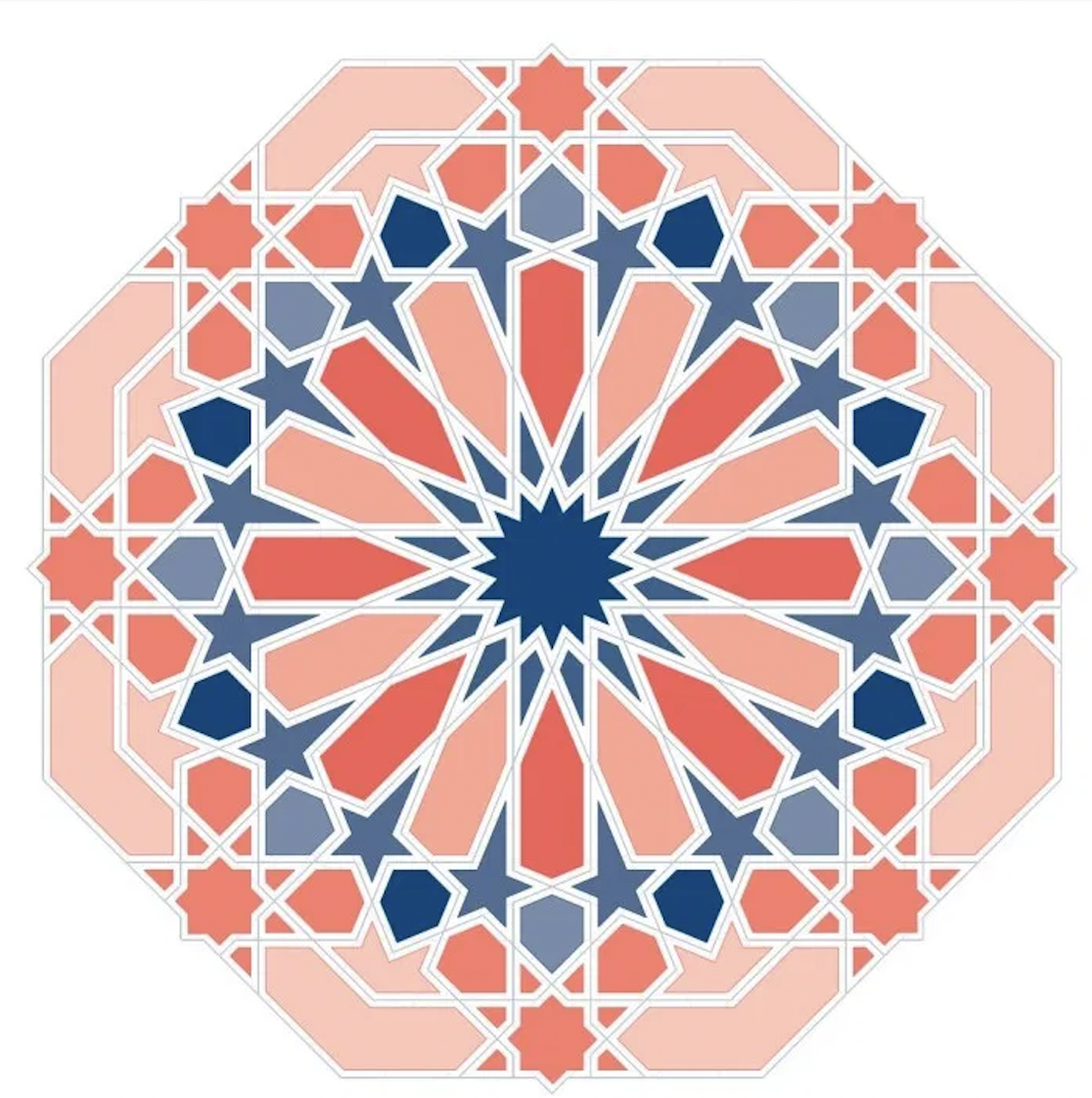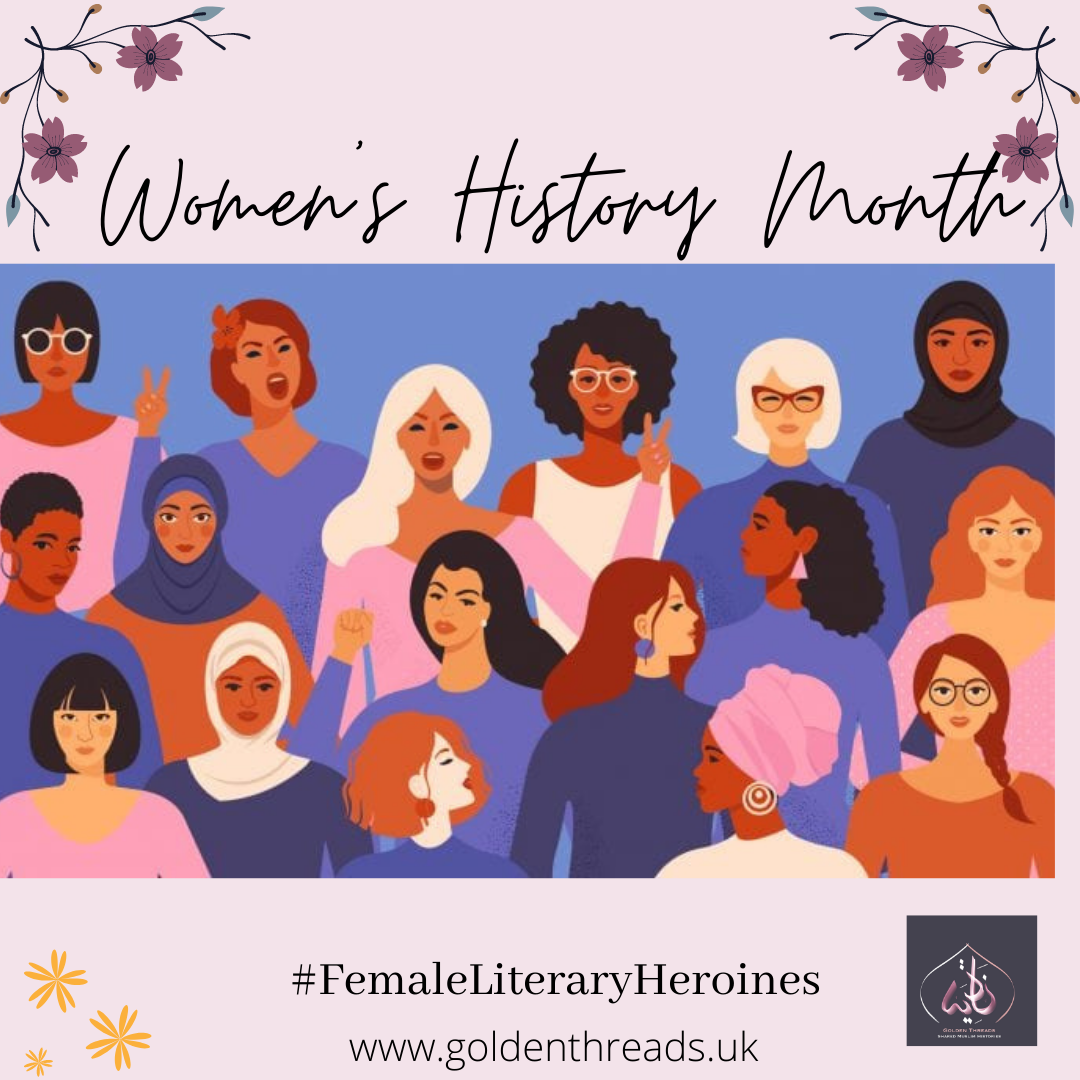Female Literary Heroines: Women’s History Month
Women have been fighting patriarchy using the power of the pen throughout history. Their novels, stories and poems are evidence of the suppression of women and blatant gender inequality.
Unfortunately, patriarchal societies are still in existence. It is only in the past century that there has been progressive change for women, but the gender pay gap and the #metoo movement suggest there is still more to do.
Many societies across the globe before the twentieth were patriarchal; men ruled the roost and women’s place was normally in the home.
The vote for women in England was only granted in the early part of the twentieth century. Before this, women struggled to be seen as an entity in their own right and it was almost impossible for them to petition for divorce. Their property and inheritance were often also controlled by their husbands. Single women, however, enjoyed slightly more freedoms.
In the Muslim world however, the Qur’an and consequently Islamic law had granted Muslim women rights which at that time were revolutionary, and was much ahead of its time in terms of gender equality. Women’s rights included inheritance, purchasing property and divorcing their husbands.
The issue for all women is that patriarchal societies operated around male dominance and keeping women suppressed and subservient. In Islamic societies where this happens, it is not to do with God’s law, but lingering patriarchal culture and male self-interest.
The treatment bestowed upon women was stifling, and oppressive. Luckily for us, some female writers and poets chose to write about these conditions, giving us a sense of how these women felt and lived. Some had to initially write with male pseudonyms, or had their works rejected several times for them to only be published or recognised posthumously.
This Women’s History Month, I choose to celebrate female literary heroines across the world who in their own unique ways champion the cause of women, and play a part in our road to liberation. In this, they are connected on a deeper level that transcends borders, faiths, races and language. They have been united in their call to freedom and justice, and are evidence of the capability, strength and intelligence of women against all odds.
Maya Angelou (1928-2014)
Dr Maya Angelou was a writer, poet and civil rights activist. She used the power of her words to highlight injustice and to speak for those without a voice.
Her most famous work was I Know Why the Caged Bird Sings which she wrote in 1969. This is the first of seven autobiographical books, in which she talks about her childhood, including being raped by her mother’s boyfriend when she was only seven years-old. This trauma caused her to go mute for five years but awakened a love for reading and a skill of communicating through the written word.
Maya Angelou’s poetry and writing addresses important socio-political subjects and issues, as well as positive portrayals of the Black community and female empowerment. She was a person who used her art to champion others and challenge inequality.
One of my favourite Maya Angelou’s poems is Still I Rise, as is resonates on a multitude of levels. This is one of her best-known poems and was used by Nelson Mandela in his presidential inauguration speech.
Still I Rise (excerpt)
“You may write me down in history
With your bitter, twisted lies,
You may tread me in the very dirt
But still, like dust, I’ll rise.”
Malala Yousafzai
Malala Yousufzai is a Pakistani activist and campaigner for women’s education.
In 2002, at the young age of only 15, Malala’ was shot in the head by the Taliban in a targeted attack. This was her price to pay for speaking up for her right to an education!
In 2013, she co-authored, I Am Malala, an engaging book that provides an insight into Malala’s life leading up to the horrific targeted attack in 2002.
The reader is given a wonderful understanding of Malala’s thoughts and beliefs, and the close relationship she shares with her father, Ziauddin Yousafzai who is an educator and activist.
Malala is very intelligent and is knowledgeable about her own religion which means she doesn’t fall prey to the distortions of the Taliban. She knows that Islam values education, for both men and women. She is aware that the Taliban are not the representatives of her religion, and fights back with her father by her side.
Malala believes God saved her for a reason, to fight oppression and for the rights of education for all girls and women.
She continues to campaign for education for all, and is a woman to be respected and admired.
The key message in the book was that education is a basic right for all; and is essential in stripping away the shackles of oppression and misinformation.
Beatrix Potter (1866-1943)
Beatrix Potter (1866-1943) is the much-loved author and artist of the timeless children’s tales including the most famous, The Tale of Peter Rabbit and Jemima Puddle-duck.
She was an independent, headstrong woman who followed her passion, defying what society in post-Victorian Britain expected of her as a woman.
After having been rejected by several publishers, The Tale of Peter Rabbit was finally published by Frederick Warne and Co in 1902, and it became a bestseller. Her first book was actually self-published as women writers were not taken as seriously as male ones; this attitude was very much a reflection of the time.
Beatrix Potter independently moved from London to the Lake District and went on to own 15 farms. She was an environmentalist at heart and bequeathed 4,000 acres of her farm lands to the National Trust, which helped the conservation of the Lake District National Park. She did eventually marry William Heelis in 1914 when she was 47.
Fahmida Riaz (1946 – 2018)
Born only one year before partition in Meerut, India, Fahmida Riaz was an acclaimed Urdu poet and writer. Her family settled in Hyderabad, in the new nation of Pakistan.
Not afraid of speaking her mind, Fahmida Riaz tackled controversial topics in her work, and was often the target of government harassment and silencing attempts under General Zia-ul Haq. After criminal charges of sedition were brough against her, she fled to India and spent seven years there. In more recent years, she also expressed her sadness at the rising anti-Muslim sentiments under the leadership of Prime Minister Modi in India.
Fahmida Riaz was an advocate for women’s rights and was thus branded a ‘feminist’. She said: “Feminism has so many interpretations. What it means for me is simply that women, like men, are complete human beings with limitless possibilities.”
Leila Aboulela
The award-winning Sudanese author, Leila Aboulela has written a host of highly acclaimed books that have themes of belonging, identity, women and Muslim cultures.
Leila was born in 1964 in Cairo and grew up in Khartoum. She moved to Aberdeen after she was married in her mid-20s. This uprooting of her life and the alienation that she initially felt in the UK is reflected in her stories and characters, these experience and emotions come through in her writing.
The main draw for me in Leila’s books is her unashamed Muslimness, and the role that Islam plays in her stories. She tells the stories of normal people, who just happen to be Muslim. Their faith is a part of them and is woven in nicely into the narrative of her stories.
Elif Shafak
Not only is Elif Shafak a brilliant award-winning writer, but she uses her talent of storytelling to raise awareness of social issues including the rights of women, minorities, the vulnerable and those who do not have a voice.
One of my favourite books written by Elif Shafak is the Forty Rules of Love, a novel about spirituality and the meaning of life. The story revolves around a bored and lacklustre housewife, whose life perspective begins to totally change after reading a story about Rumi, the Sufi poet and philosopher from the 13th century. She learns about Rumi’s life and his friendship with Shams of Tabriz, a wandering dervish which helps Rumi to break out of a rut, and to grow spiritually. The story mirrors the journey that the protagonist is about to embark on.
In Elif Shafak’s recent novel, The Island of Missing Trees she explores the themes of identity, intergenerational trauma, family and belonging. She believes that people need to know their history, however painful, as it is part of who they are.
Alice Walker
Alice Walker is an African-American writer, poet and social activist.
She was the first African-American woman to win a Pulitzer Prize for her novel, The Color Purple.
Alice Walker wrote the novel in 1982, and it is her best-known work. It was adapted into a film by Steven Spielberg starring Whoopi Goldberg and Oprah Winfrey.
The book is set in rural Georgia, America in the early 1900s with themes of sexism, abuse, racism, identity and strong female relationships. The main character Celie, a young black woman, faces many hardships and trauma, her father sexually abuses her and impregnates her twice. He then forces her into a marriage where her husband also abuses her.
Celie’s outlet for all this trauma is letters which she writes to God, pouring out her inner feelings. This is the only place where she has a voice and is free to speak her truth. It is through her connection with God and establishing strong female relationships that Celie is able to find hope and set herself free from pain and oppression. It is an inspirational read and is a powerful depiction of that post-slavery America, and is held up as a celebration of black feminism.

